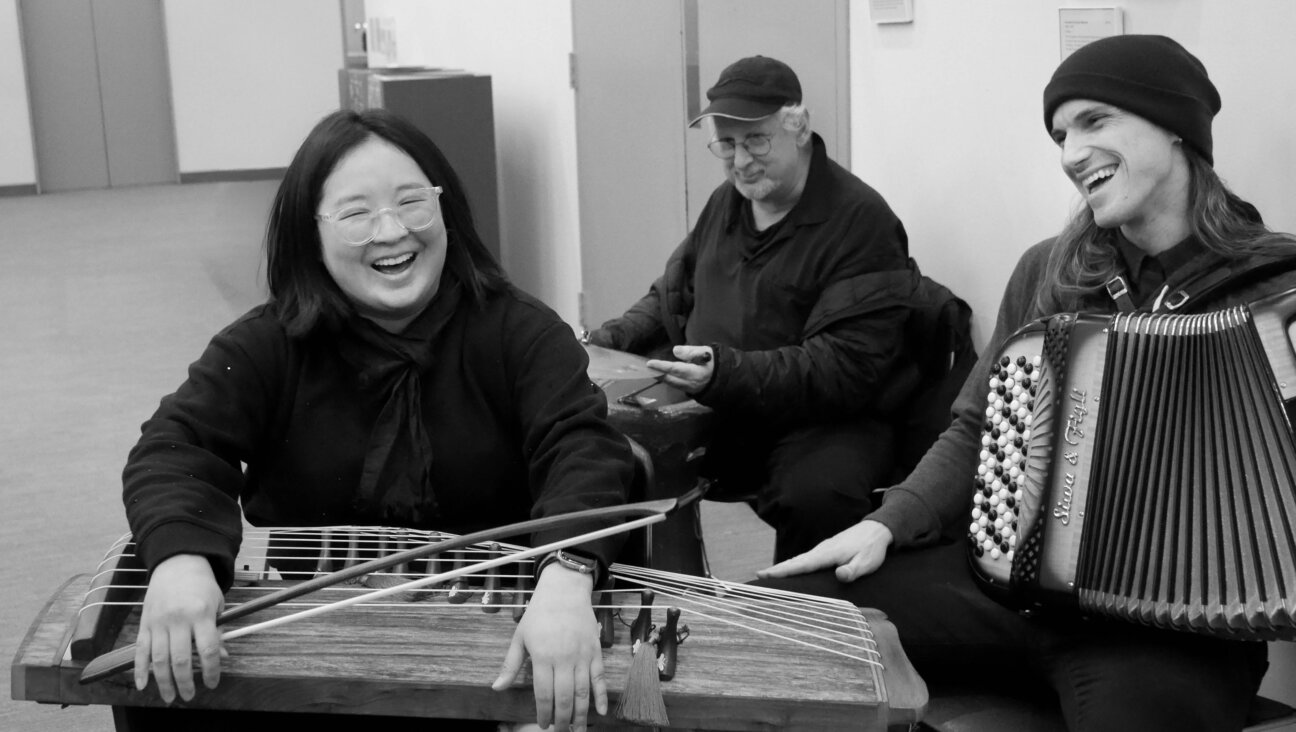WATCH: Women of the Wall Back Down After Ban on Passover Priestly Blessing Rite

Image by Getty Images
The Women of the Wall group held Passover holiday prayers at the Western Wall, but did not hold a priestly blessing ceremony, after being banned by Israel’s attorney general.
Some 200 women arrived at the Western Wall on buses from throughout the country to hold the Shacharit, or morning, prayers, and Mussaf, or additional, prayers for Passover on Sunday morning, the first day of the intermediate days of the holiday in Israel. During the consecutive services held in the women’s section of the Western Wall plaza, the women read the priestly blessing, but did not raise their hands and make the traditional symbol nor cover their heads with their talitot.
On Thursday, Israel’s Attorney General Avichai Mendelblit ruled that holding a female version of the priestly blessing ceremony violated a law enforcing “local customs” at religious sites in Israel.
His decision followed a meeting with police, prosecutors, the legal adviser of the Religious Services Ministry and the rabbi of the Western Wall, Shmuel Rabinowitz.
In announcing the ceremony, to be held at the Western Wall’s women’s section, Women of the Wall had declared it “the first of its kind.” Tens of thousands of Jews flock to the Western Wall to receive the blessing from kohanim, or descendants of ancient Israel’s priestly caste, during the intermediate days of Passover.
Transportation for Women of the Wall participants to and from cities throughout Israel was provided by a grant from the Susan Bay Nimoy and Leonard Nimoy Estate, according to the Women of the Wall. Participants also received a Priestly Blessing pin commemorating the prayer. The pin was derived from the hand symbol employed in Star Trek by Mr. Spock, a role played by Jewish actor Leonard Nimoy. Nimoy made the blessing, “Live long and prosper,” using the hand motion of the kohanim, an international symbol.
The women who participated in the service Sunday morning were required to stand in a specially cordoned-off area of the women’s section, under heavy police guard. They were not allowed to read from a Torah scroll during the service. The group also charged in a statement that a police officer videotaped the service to make sure no women raised their hands in the air to perform the priestly blessing.
“Women of the Wall believe that even though the Priestly Blessing is an unusual custom at the Wall, in due time, it will become local custom. We believe that the nature of local custom changes as time passes- in the past, wearing a tallit, blowing a shofar, and lighting a Chanukah candle were all considered contrary to local custom, and it is through our persistence that these are now local custom,” the group said in a statement issued Sunday following the service.
In a statement release Sunday, the office of the rabbi of the Western Wall called the women’s service a “provocation,” and “expressed regret” that the group gathered for a service despite the attorney general’s ruling.
“This act proves that they cannot be trusted on any agreement reached with them,” the statement said, referring to the recent agreement to build an egalitarian prayer section of the Western Wall.
The statement called on the public to attend the planned public mass priestly blessing ceremony on Monday morning.














